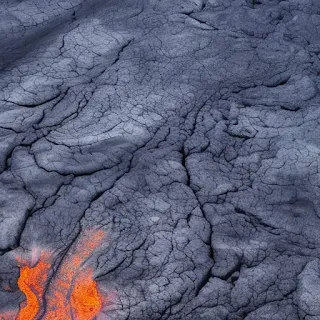Madagascar Earthquakes and Volcanoes — A Nature Watcher’s Guide
Madagascar Earthquakes and Volcanoes — A Nature Watcher’s Guide
Madagascar’s volcanoes have not erupted in over 80 million years, yet the island experiences regular earthquakes each year. Its dramatic geologic past has shaped one of the world’s most unique ecosystems, making it a fascinating destination for nature lovers and geology enthusiasts.
A Continent’s Drift — Madagascar’s Geologic Story
Madagascar was once part of the ancient supercontinent Gondwana. Around 165 million years ago, Africa broke away, forming the island’s west coast. Later, about 90 million years ago, massive lava flows covered much of the land. Madagascar finally split from India roughly 88 million years ago, drifting into its present position in the Indian Ocean.
This long geological isolation helped shape Madagascar’s distinctive terrain — highlands, coastal plains, and volcanic fields — and allowed its famous wildlife to evolve apart from mainland Africa.
Volcanoes of Madagascar
Although dormant for millions of years, Madagascar’s ancient volcanoes created striking landscapes of craters, lava plateaus, and fertile valleys. These areas now support unique forests and rare animals that nature watchers travel to see.
| Volcano | Height |
|---|---|
| Ankaratra Field | 8,674 ft |
| Ankaizina | 9,442 ft |
| Itasy Volcanic Field | 5,905 ft |
| Ambre-Bobaomby | 4,839 ft |
| Nosy-Be | 702 ft |
Earthquakes in Madagascar
While Madagascar’s volcanoes are long dormant, the island experiences frequent earthquakes as its crust adjusts to ancient fault lines. On January 12, 2017, a 5.5-magnitude quake shook cities including Antananarivo and Antsirabe. The strongest recorded quake in Madagascar’s history was a magnitude 6.2 event over 60 years ago.
| Recent Quakes |
|---|
| 5.5 — Betafo, Vakinankaratra |
| 4.8 — Antalaha, Sava |
| 5.3 — Anakao, Atsimo-Andrefana |
| 4.2 — Amparafaravola, Alaotra Mangoro |
| 4.5 — Maroantsetra, Analanjirofo |
| 4.1 — Maevatanana, Betsiboka |
| 4.3 — Morondava, Menabe |
Madagascar’s Natural Wonders
Madagascar is the world’s fourth largest island and home to wildlife found nowhere else — from ring-tailed lemurs to rare chameleons and baobab trees. Its isolated evolution has created an ecological paradise for nature watchers.
Nearly 80% of the population relies on small-scale agriculture, often using slash-and-burn methods that threaten Madagascar’s biodiversity. Deforestation here has a huge global impact because so many species exist only on this island.
For travelers, understanding Madagascar’s geology adds depth to spotting its rare species. Volcano-created soils support lush rain-forests, while earthquakes hint at the land’s restless past.


